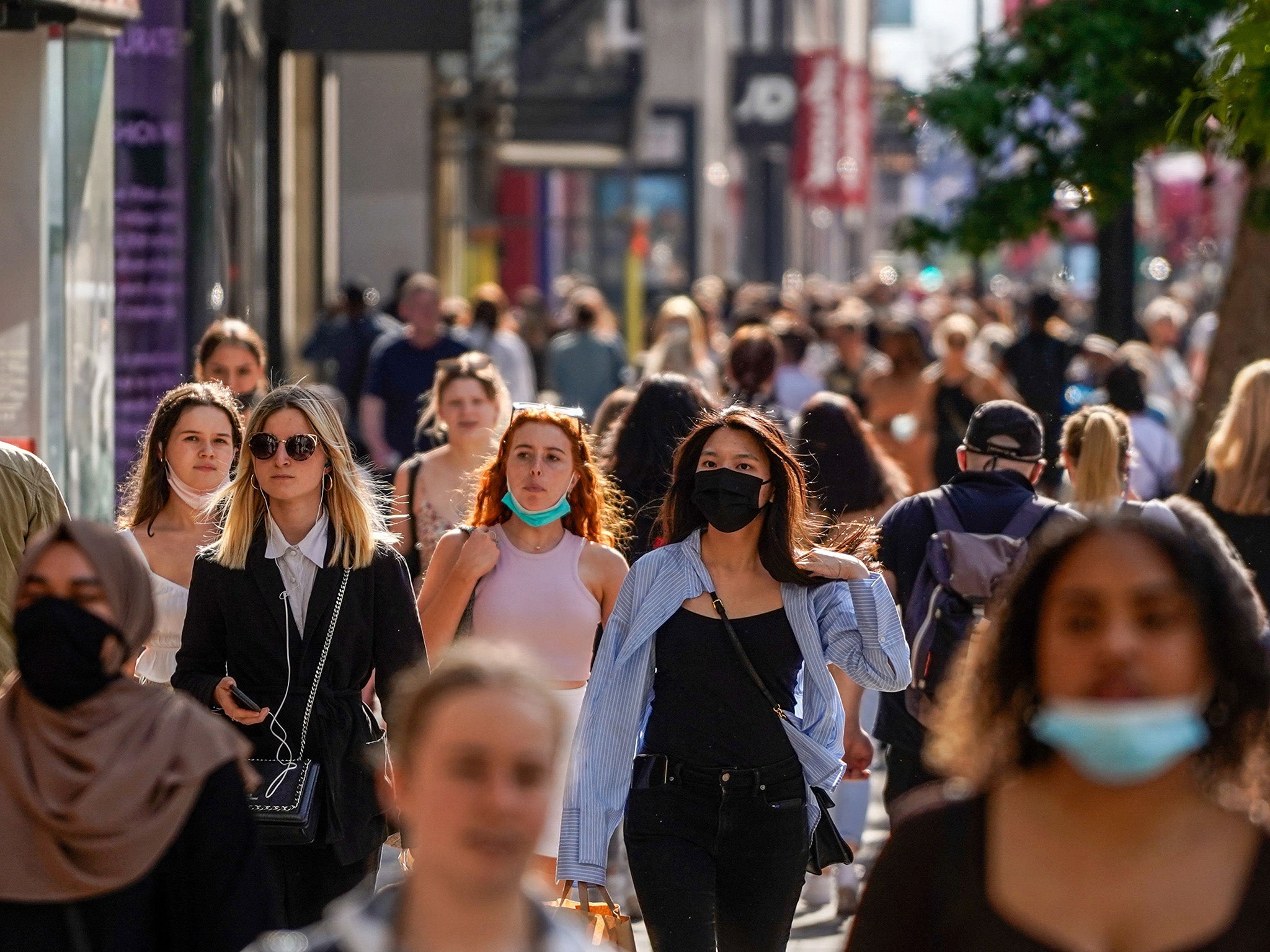The 10 lessons we need to learn from lockdown as we fully reopen
You can undo the Covid-19 restrictions, but not the experiences that we have gained, writes Hamish McRae


What have we learnt from lockdown? We can see the path to a sort-of reopening of the economy, a path that other economies around the world are in some way or another following. But it won’t be the same, will it, as it was 18 months ago?
You undo the Covid-19 restrictions, but you cannot undo the experiences – good or bad – that we have gained. We will not be able to make a proper tally of what we have learnt for many months, maybe years. But we can think about some early lessons. Here are ten candidates, five broadly positive, five broadly negative.
First – and most obvious – is the online distribution mechanism. The proportion of UK retail sales online has gone up from 20 per cent to about 30 per cent, though it has not settled yet. It is probably more efficient: fewer road journeys and lower energy bills for out-of-town warehouses than for supermarkets.
Second, equally obvious, has been the working from home revolution. That has not settled at all and my hunch is that we will find most of us do go back to the office most of the time. Let’s also remember that this choice was not available to the many people who slogged on providing essential services, sometimes at danger to themselves. But even if office work does again become the norm, we will have learnt more efficient ways of doing our jobs. We will use telecommunications more effectively: less time travelling to meetings, more in productive work.
Third, we have learnt the importance of local: local specialist stores and local suppliers. The hugely complex global supply chains cut costs and in that sense brought benefits to consumers. But they were fragile – look at the blow to car production because of a shortage of chips – and the pandemic exposed that fragility. At every level the economy will become more robust.
That leads to thought four. People have in general been extremely resilient in the face of something we have not experienced before: resilient in our work and leisure pursuits, and also in the way we handle personal relations. Businesses have had to become more resilient – and innovative – too. Sadly some have not survived, but if you take the overall level of employment, even back in the February/April quarter it was close to its pre-pandemic level. There will be a test as the furlough scheme is tapered down, but a KPMG survey last month reported that the job market is currently the strongest for more than 20 years.
Thought five is really a global one. It is that the mixture of government support, international cooperation, and commercial competition has managed to carry on producing goods and services, and crucially developing the vaccines, despite the chaos. There are many flaws in the global market economy, but it has done the job it had to do.
Now for the five less positive lessons, as we have come to learn the limits of the shift to an online world. For a start, online schooling doesn’t appear to work very well. A report by the Education Policy Institute and Renaissance Learning showed that primary school children were more than two months behind on their reading and three months behind on their maths when the schools reopened in March. The Institute for Fiscal Studies believes that young people will suffer lower earnings throughout their lives as a result of lost schooling.
Next, while most companies have tried to carry on recruiting and training young people starting their careers, online induction has proved difficult to manage. There is a danger that people hitting the job market for the first time in the past year will be at a lifelong disadvantage. While people who are established in their careers and have a network of contacts can manage to work without face-to-face meetings, early-career workers can’t build the networks they will need later on.
The third negative has been the limited competence of governments. That is not particularly to criticise UK policies, though there are plenty of reasons to do so. Rather it is to note that governments around the world have stumbled in their responses. There have been a few stars – Taiwan? – but even early good performers such as Germany have faltered. Maybe voters expect too much of governments, but learning their limits has been disconcerting.
We have also seen the limits of “experts”. Some parts of the academic community have been wonderful: clear and measured, acknowledging the limits of their knowledge. Others have been ill-tempered – and found it difficult to admit it when they are proved plain wrong.
Finally, not so much a negative but more a general observation. We have learnt a lot about ourselves as humans. We have seen the best of people, but also the worst: from the small courtesies from strangers to the blatant disregard of regulations just because people don’t agree with them. That is not really an economic point, but it is something to ponder.



Join our commenting forum
Join thought-provoking conversations, follow other Independent readers and see their replies
Comments